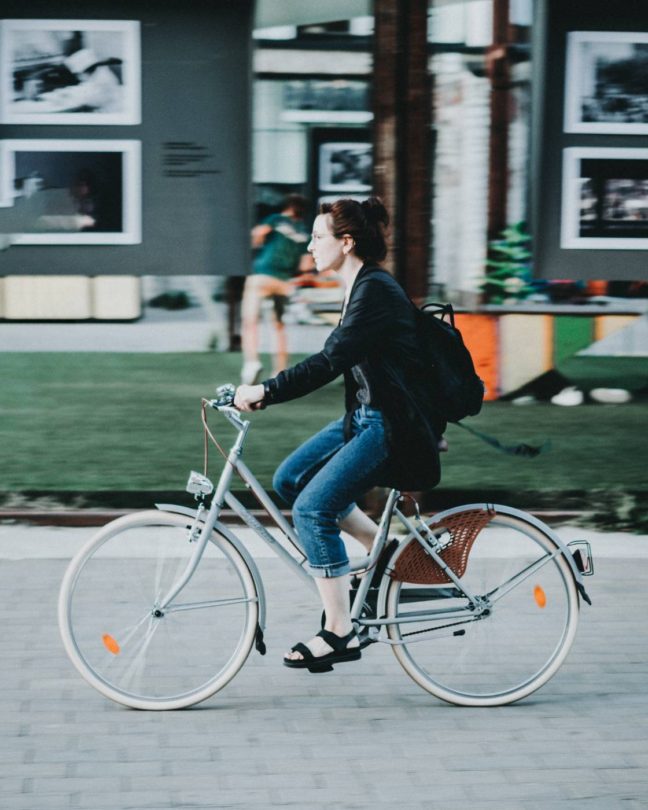The rules for riding a bike under the influence (DUI) vary by state. It’s all about whether your state considers a bicycle a ‘motor vehicle’ under its DUI laws.
Virginia does not classify bicycles as ‘motor vehicles,’ but they’re still considered ‘vehicles’ subject to most traffic laws. This means you can face serious charges for riding your bike recklessly and need to speak to a DUI attorney in Virginia Beach, especially if you’re under the influence of drugs or alcohol.

What Can Happen if You Ride Under the Influence
If you are caught by law enforcement riding a bicycle while under the influence, you could face charges for:
- Reckless biking: Endangering yourself or others with a bike is a Class 1 misdemeanor that can carry fines, court appearances, and jail time. Putting anyone’s life, limb, or property at risk with your cycling behavior is a serious offense. Losing control of your brakes, illegal passing, risky riding maneuvers, or failing to signal can all land you in hot water.
- Public intoxication and/or disorderly conduct: These misdemeanors carry potential penalties, too.
Riding an e-bike follows the same rules as regular bikes, meaning you can’t be charged with a DUI but could still have other charges. Electric scooters and mopeds are a different story.
If your scooter has a fifty-cc engine and can reach thirty-five miles per hour, it’s legally a moped, and DUI laws apply.
Understanding Blood Alcohol Levels
Virginia has some of the toughest DUI laws in the country. That said, in all states, a blood alcohol concentration (BAC) of 0.08% or above is legally intoxicated.
This applies regardless of whether you’re stumbling around a parking lot or singing karaoke on your handlebars. A first-time offender could have their driver’s license suspended and have to install a mandatory ignition interlock device when they get back behind the wheel. Punishments get harsher with each DUI conviction.
Studies show even a small amount of alcohol (0.02% BAC) can impair your driving abilities, and affect vision, multitasking, and judgment. At 0.05% BAC, a person struggles to track moving objects, steer smoothly, and react to emergencies.
Attorneys can argue certain technicalities, but generally, a 0.08% BAC or higher is considered solid evidence for a DUI.
Why Biking Under the Influence Is a Problem
All states have laws against public intoxication or disorderly conduct. If you’re causing a scene or putting yourself or others at risk with your drunken or drugged cycling, you can be detained. Police officers are sworn to protect the public. If they see someone acting dangerously due to alcohol or drugs, they have the right–and the responsibility–to intervene.
Because of its strict approach, Virginia has seen a 28% drop in alcohol-related traffic deaths since 1992. However, alcohol still plays a role in approximately 27% of all traffic fatalities in 2022 (274 out of 1,005). To put it more into perspective, in 2022, Virginia saw a daily average of:
- One person killed in an alcohol-related crash
- Eleven people injured in an alcohol-related crash
- Nineteen alcohol-related crashes
The Commonwealth wants to protect its citizens from unnecessary harm that an intoxicated rider can cause.
A Better Alternative
Riding a bike under the influence is a bad idea. Play it safe, lock up your bike, and find a sober ride home—call an Uber or Lyft, even if you are just ‘buzzed.’ You may not want to pay for a ride, but it is better than the alternative of incurring a criminal record. After all, Virginia takes reckless biking seriously, and the consequences could be costly and unpleasant.
Need Help? Contact a DUI Pro
The bottom line is you should never drink and bike–it’s dangerous and illegal. If accused of drunk or drugged biking, seek advice and representation from a skilled DUI attorney from Coastal Virginia Law. Virginia DUI and traffic laws are complex, so let us navigate the state’s legal maze, explain if you can go to jail for a DUI, and fight your charges.



